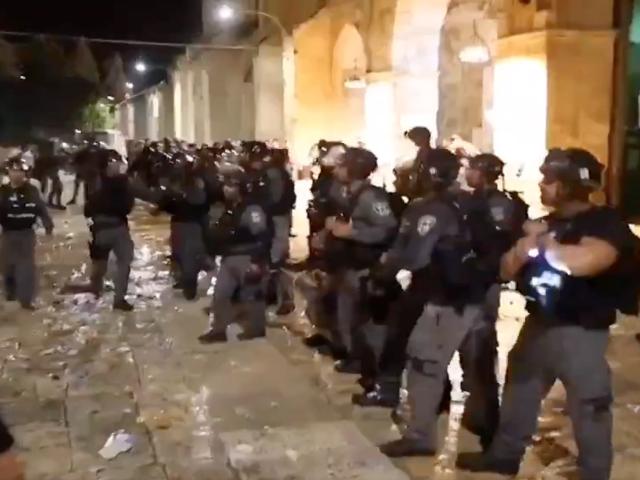On Sunday evening, officials in Saudi Arabia, the custodian of Islam's most sacred sites, announced the sighting of the crescent moon, heralding the commencement of Ramadan. This period of fasting and reflection is observed by approximately 1.8 billion Muslims worldwide. Concurrently, in Israel, a nation of profound historical and religious significance, authorities have bolstered security measures in Jerusalem's Old City. This area, known for its historical tensions, contains sites of paramount importance to both Judaism and Islam, making it a focal point during religious observances.
IDF Spokesman Rear Adm. Daniel Hagari says the military is "strengthening" its security preparations ahead of Ramadan, due to begin tomorrow, and is readying for "all possible scenarios in all arenas."
— Emanuel (Mannie) Fabian (@manniefabian) March 9, 2024
The preparations come as Hamas appears to have toughened its stance on a…
There is heightened activity in the Old City as Palestinian worshippers prepare for Tarawih, the special nightly prayers performed during Ramadan. The Israeli police's increased presence is a precautionary response to potential security disturbances in East Jerusalem and Judea and Samaria, reflecting a period of heightened vigilance.
Channel 12 in Israel reported the proactive steps taken by local authorities, including the distribution of text messages to Jerusalem residents, cautioning against participation in unrest. Additionally, leaflets have been circulated in East Jerusalem's neighborhoods, explicitly warning against engaging in riots during the sacred month.
Israeli security braces for escalation amid Ramadan tensionshttps://t.co/b7DVM2NQHS
— World Israel News (@worldisraelnews) March 10, 2024
These measures come against a backdrop of rising tensions in both the West Bank and East Jerusalem. Israeli Defense Minister Yoav Gallant has issued stark warnings regarding the likelihood of escalated security challenges during Ramadan, as documented in an internal memorandum to defense officials. This document, revealed by Yedioth Ahronoth, underscores the seriousness with which Israeli authorities view the potential for conflict during this period.
The broader regional context includes ongoing military operations in the West Bank, where the Israeli army has intensified its activities. These developments coincide with a severe conflict in the Gaza Strip, initiated on October 7 following a violent incursion by Hamas militants and associated actors, which resulted in substantial loss of life, injuries, and hostage-taking in Gaza border communities.
After Shin Bet arrested 13 Israeli Arabs in northern Israel, suspected of planning attacks, buying weapons from the West Bank, and receiving bomb-making instructions from Hamas in Gaza, Prof. Uzi Rabi discusses the security measures Israel has to take for Ramadan pic.twitter.com/MPZqR6QevH
— i24NEWS English (@i24NEWS_EN) March 10, 2024
Israel's military response in Gaza has led to widespread displacement, affecting nearly two million residents. The majority have sought refuge in Rafah, a city already grappling with the challenges of high population density, located near the Egyptian border. This situation reflects the complex interplay of religious observance, national security, and the enduring quest for peace in a region marked by deep-seated historical and cultural ties.


